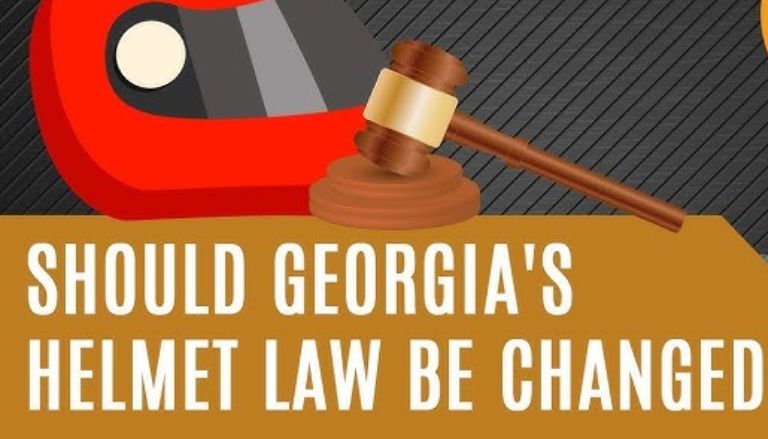In Georgia, motorcycle helmet laws have long been a topic of discussion, balancing the imperative of rider safety against the principles of personal freedom. As of 2025, Georgia maintains its stringent helmet regulations, mandating that all motorcycle operators and passengers wear helmets that comply with standards set by the Department of Public Safety. This article delves into the specifics of these laws, the rationale behind them, and the ongoing debate between safety and individual choice.
Georgia’s Helmet Law: An Overview
Enacted in 1969, Georgia’s helmet law requires that “no person shall operate or ride upon a motorcycle unless he or she is wearing protective headgear which complies with standards established by the commissioner of public safety.” This mandate applies universally, regardless of the rider’s age or experience. Exceptions are minimal, including individuals riding within an enclosed cab or those operating three-wheeled motorcycles used solely for agricultural purposes. You can read more about these regulations on SteelHorse Law.
Safety Implications
The primary justification for such comprehensive legislation is the significant safety benefits helmets provide. According to the National Highway Traffic Safety Administration (NHTSA), helmets are approximately 37% effective in preventing fatal injuries to motorcycle riders and 41% effective for passengers. In 2020, Georgia reported 192 motorcycle fatalities, underscoring the critical importance of helmet use in reducing traffic-related deaths. The Georgia Department of Driver Services continues to emphasize the necessity of wearing helmets to minimize these risks.
Legal Consequences of Non-Compliance
Failing to adhere to Georgia’s helmet law can result in substantial penalties. Offenders may face fines up to $1,000 and imprisonment for up to one year, along with potential community service requirements. Beyond legal repercussions, not wearing a helmet can adversely affect personal injury claims. In the event of an accident, insurance companies may argue that the rider’s injuries were exacerbated by the absence of a helmet, potentially reducing the compensation awarded. More details on the legal implications can be found at Butler Law Firm.
The Debate: Safety vs. Personal Choice
While the safety advantages of helmet use are well-documented, the mandate has faced opposition from those who advocate for personal autonomy. Critics argue that individuals should have the right to assess risks and make their own decisions regarding helmet use. They contend that mandatory helmet laws infringe upon personal freedoms and that education, rather than legislation, should be the focus. The legal team at Cohen & Sinowski has highlighted various perspectives on this debate.
Conversely, proponents of the helmet mandate emphasize the broader societal benefits. They highlight the reduction in healthcare costs due to fewer severe injuries and the overall enhancement of public safety. The argument posits that while personal freedom is important, it should not come at the expense of increased risk and potential harm to others.

Comparative Perspective
Nationally, helmet laws vary significantly. As of 2025, only 17 states and the District of Columbia have universal helmet laws requiring all motorcyclists to wear helmets. Studies suggest that more than 20,000 motorcyclist fatalities could have been prevented since the 1970s if stricter helmet laws had been in place across all states. This data indicates that comprehensive helmet laws can lead to a substantial decrease in rider fatalities. A recent AP News report further explores how different states are handling helmet legislation.
Conclusion
Georgia’s motorcycle helmet laws exemplify the ongoing effort to balance individual rights with public safety. While the debate between personal choice and mandated safety measures continues, the evidence supporting helmet use as a life-saving measure is compelling. As discussions evolve, it remains crucial to consider both the value of personal freedom and the collective benefits of enhanced safety regulations.
For more detailed information on Georgia’s motorcycle helmet requirements, visit the official website of the Georgia Department of Driver Services.






Leave a Comment